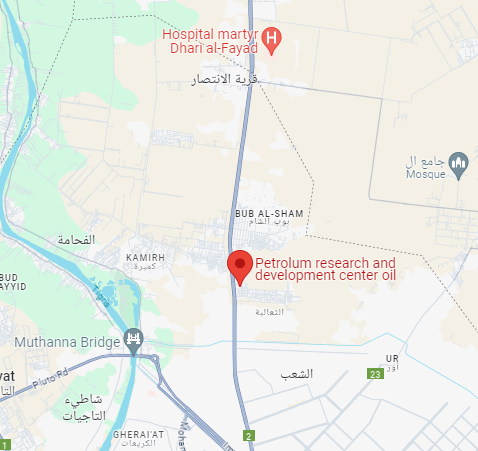Adsorption of Some Heavy Elements on Surface of Activated Carbonized Cellulose from Aqueous Solution
DOI:
https://doi.org/10.52716/jprs.v12i2.661الكلمات المفتاحية:
adsorption, activated carbonized cellulose, heavy metals, (R2), isotherm.الملخص
In this study the activated carbonized cellulose in (350 ºC) by citric acid have been used to remove some heavy metals (Hg Cd, Cu, Pb) from its aqueous solution at room temperature. The adsorbed metals data applied on three adsorption isotherm models, Freundlich, Langmuir and Temkin isotherms. The adsorption results were very good fitted with isotherm models by the (R2) meaningful value. The removal metals adsorbed on surface of adsorbent from high to the less remove arranged according to its ability depending on the nature and size of metals. The free energy (ΔG) and constants of the adsorption process (Ɵ, n, kf, kT, b, bT) for copper, lead and cadmium were measured from isotherm curves, infra-red spectrums of the activated carbonized cellulose and cellulose itself were measured by FTIR spectrophotometer.
المراجع
References
P. W. Atkins, “Physical Chemistry “, 6 th edition, Oxford university Press, Oxford, pp. 857 – 864, 2001.
V. Warren, & M. J. Hammer, “Water Supply and Pollution control”, 7 the edition. Prentice – hall, ISBN 0-13-140970-0, pp.42, 2005.
A. P. Terzyk, Abstract from Adsorption science and Technology, vol.20, no.1, 2003.
N. K. Srivastava & C.B.Majumder, Novel biofiltration methods for the treatment of heavy metals from industrial wastewater. J.Hazard Mater, vol.15, no.1, pp.1-8, 2008.
O. M. Ramadhan & M. A. Rigibi, Activated Carbon by Modified Carbonization, science and Educt. vol.46, PP.110-221, 2000.
R. T. Al-Abady, Thermodynamic and kinetic study of Adsorption of some Azo Dyes on Activated Carbon and other Developed Adsorbents, M. Sc. Thesis. Mosul University, 2005.
V. P. Vinod, & T.S. Anirudham,” Sorption of Tannic Acid on Zirconium Pillared Clay”, J. Chem Technol. Biotechnol., vol.77, pp.92-101, 2001.
A. Bahl, B. S. Bahl, & G. D. Tuli, “Essentials of Physical Chemistry”, Multicolour Ed., S. Chand, pp.847, 2012.
S. Jodeh, R. Ahmad, M. Suleiman, & S. Raid, “Kinetics, Thermodynamics and Adsorption of BTX Removal from Aqueous Solution via Date-Palm Pits Carbonization Using SPME/GC-MS", J. Mater. Environ. Sci. vol.6, no.10, pp.2853-2870, 2015
J. Robinson, & S. Lipschutz, “Holistic Health care for people and Animals”, 1est, Ed, McGraw-Hill, New York, 2009.
J. H. Meiser, & K. L. Ladler,” Physical Chemistry”, Benjamin Cummings Publishing company, pp.775, 1982.
I. Arthur Vogel, "Quantitative Inorganic Analysis", Woolwich polytechnic, London, S.E.18, pp.358, pp. 444, pp.487,1961.
M. M. Yassen, R. A. Imran, & B. A. Hassan, "Adsorption of some heavy metals on carbonized (CRH) and activated rice husk (ARH) surfaces from aqueous solution" Al-Furat J. of Agricultural Sci. vol.9, no.4, pp.1448-1461, 2017.
H. R. Kruyt, & J. T. G. over Book, “Introduction to Physical Chemistry”. Hott. Rinehart and Winston, Inc., 91, 1964.
G. S. Gupta, G. Prasad, & V. N. Singh, “Environmental Water Advances in Treatment Remediation and Recycling”, pp.24- 45, 1990.
H. E. Deveci, Y. Yazici,I. Alp & T . Uslu., Removal of cyanide from aqueous solutions by plain and metal- impregnated granular activated carbons. Inter. J. Min. Proc., vol.79, pp.198-208, 2006.
T. N Webber & R. K. Chakravarti, Pore and Solid Diffusion Models for fixed bed adsorbers. J.Am.Inst.Chem.Eng. vol.20, pp.228- 238, 1974.
C. Aharoni, M. Ungarish, Kinetics of activated chemisorption. Part 2. Theoretical models, J. Chem. Soc. Faraday Trans. Vol.73, pp.456-464, 1977.
D. Basmadjian, “The little Adsorption Book “, London, University, London, pp.366 -372, 1996.
التنزيلات
منشور
كيفية الاقتباس
إصدار
القسم
الرخصة
الحقوق الفكرية (c) 2022 Ghassan Burhan Yaqoob

هذا العمل مرخص بموجب Creative Commons Attribution 4.0 International License.














